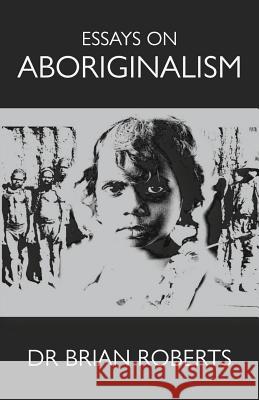Essays on Aboriginalism » książka
Essays on Aboriginalism
ISBN-13: 9780995382404 / Angielski / Miękka / 2016 / 292 str.
Roberts' Rule: Tribal identity is proportional to discrimination by outsiders. ESSAYS ON ABORIGINALISM is the first collection from Dr Brian Roberts on Indigenous Futures and aims to present a more nuanced alternative to the simplistic Left/Right binary view offered by the contemporary Australian commentariat. The essays revisit the worldview of the de-colonisation idealists and employ the records of global colonisation as a means of rationalising historic migrations. Dr Roberts attempts to counter local Indigenous exceptionalism with a detailed description of how his First People at Stonehenge were repeatedly invaded until they had virtually lost their original culture and language. He recommends 25 other issues equally deserving of Recognition alongside the Recognition of Aboriginals in the Constitution.
Contrasting Australian and South African racial politics and troubled democracy, special coverage is given to Constitutional Recognition and Noel Pearson's leading role in this now-fraught process. Special attention is also given to the authenticity of Aboriginal identity - a subject where 'Anglos fear to tread' as a result of the increasing propensity for Aboriginals to take offence under the Racial Discrimination Act (1975).
Roberts’ Rule: Tribal identity is proportional to discrimination by outsiders.ESSAYS ON ABORIGINALISM is the first collection from Dr Brian Roberts on Indigenous Futures and aims to present a more nuanced alternative to the simplistic Left/Right binary view offered by the contemporary Australian commentariat. The essays revisit the worldview of the de-colonisation idealists and employ the records of global colonisation as a means of rationalising historic migrations.Dr Roberts attempts to counter local Indigenous exceptionalism with a detailed description of how his First People at Stonehenge were repeatedly invaded until they had virtually lost their original culture and language. He recommends 25 other issues equally deserving of Recognition alongside the Recognition of Aboriginals in the Constitution.
Contrasting Australian and South African racial politics and troubled democracy, special coverage is given to Constitutional Recognition and Noel Pearson’s leading role in this now-fraught process. Special attention is also given to the authenticity of Aboriginal identity – a subject where ‘Anglos fear to tread’ as a result of the increasing propensity for Aboriginals to take offence under the Racial Discrimination Act (1975).











